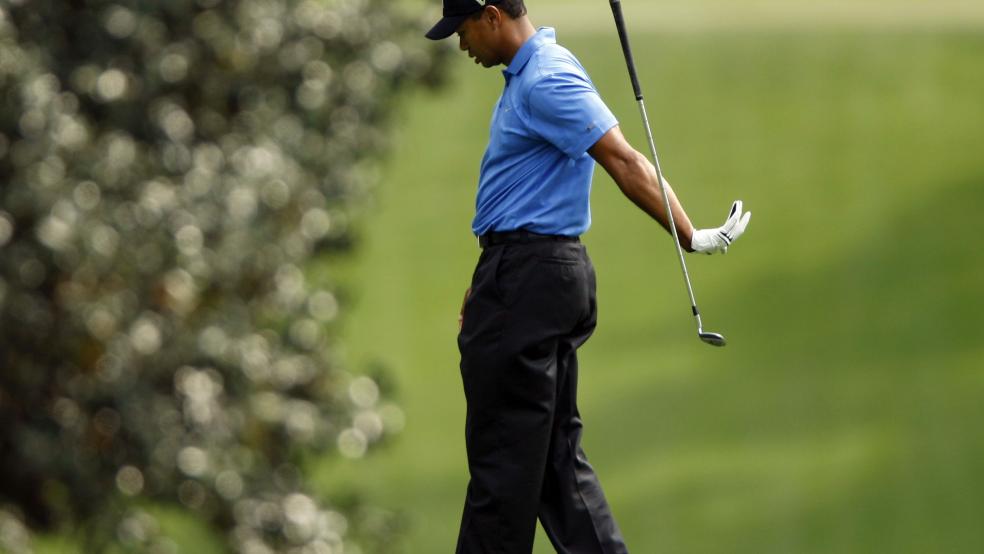Tiger Woods' absence from the 2014 Masters Tournament will have effects well beyond the game of golf itself. Ticket prices are dropping, tournament events and sponsorships are taking a hit, and even TV ratings are expected to move lower in the first Tiger-less Masters since 1994.
If you've ever wanted to roam the beautiful greens of Augusta, this may be the year to do it. After Tiger's announcement, badge prices fell immediately. Secondary ticket seller TiqIQ is seeing a 66 percent drop in the entry price for the first day of the Masters this year versus last year, when Woods was coming off a win at the Arnold Palmer Invitational.
At Stubhub, ticket prices fell 20 percent the day after Tiger's announcement. "There's no athlete in the world who has more of an effect on ticket prices than Tiger Woods," said spokesman Cameron Papp .
On the business side, the exclusivity of the Masters has always been a strong driver for corporate entertaining, but this year's landscape is a lot different, according to Robert Tuchman, president of Goviva, a sports and events company that's sending more than 350 clients to Augusta this year.
Related: 9 Sports Superstars You've Never Heard Of
"As much as people want to see the Masters, Tiger is a major driver for going to the tournament," he said. Tuchman said he's seen about a 25 percent drop-off on the hospitality side—housing, tickets, transportation and other things Goviva finds for clients—and has seen a 30-35 percent drop-off in terms of corporate bookings to the tournament itself since Tiger's April 1 announcement. Normally, sales would be increasing during this time of year, he said.
"It's definitely not good for us when Woods isn't playing," Tuchman said.
For brands and corporate sponsors, the Masters is one of the biggest events of the year. "There is no better exposure for golfers and their brands" said Paul Smith, CEO of sports marketing research firm Repucom.
The 2013 Masters generated globally 25 percent more value per second of exposure for player sponsorships than the next closest major, according to Repucom.
No Tiger means significantly less airtime for brands that sponsor him, like Nike. Data from the company indicated that during the 2013 Masters, Woods coverage provided Nike with three times more airtime than its next best Nike brand endorser, Rory Mcllroy, did. Smith said that translates to about $3 million-$4 million in lost exposure for Tiger's top sponsor.
It's not just sponsors left scrambling because of Tiger. CBS Sports will miss out on the Tiger ratings boost. While Woods hasn't won at Augusta since 2005, he routinely creates the most buzz and draws the biggest TV ratings.
Neal Pilson, the head of a sports TV consulting company and a former president of CBS Sports, said that historically, Tiger's presence has contributed a 30-35 percent ratings increase. Pilson said while he expects Tiger's absence to have an impact on ratings, he does not believe it will be as negative as in previous years.
Related: The Jobs Market Reaches a Meaningless Milestone
"I don't think he's quite as big a ratings draw as when he was regularly winning on the tour," he said. "If it's a competitive Masters, I think the ratings will be almost as strong as if Tiger were there."
One area that appears to be Tiger-proof is Woods' merchandise at the retail level. At least for now. Dick Sullivan, PGA Tour Superstore CEO, said that so far he's seeing no effect at all on Tiger Woods merchandise sales. Sullivan said Woods' product line continues to grow as a percentage of the PGA Tour Superstore's overall business.
"People are going to continue to shop regardless of if Tiger is in the Masters," he said.
This article originally appeared in CNBC.




